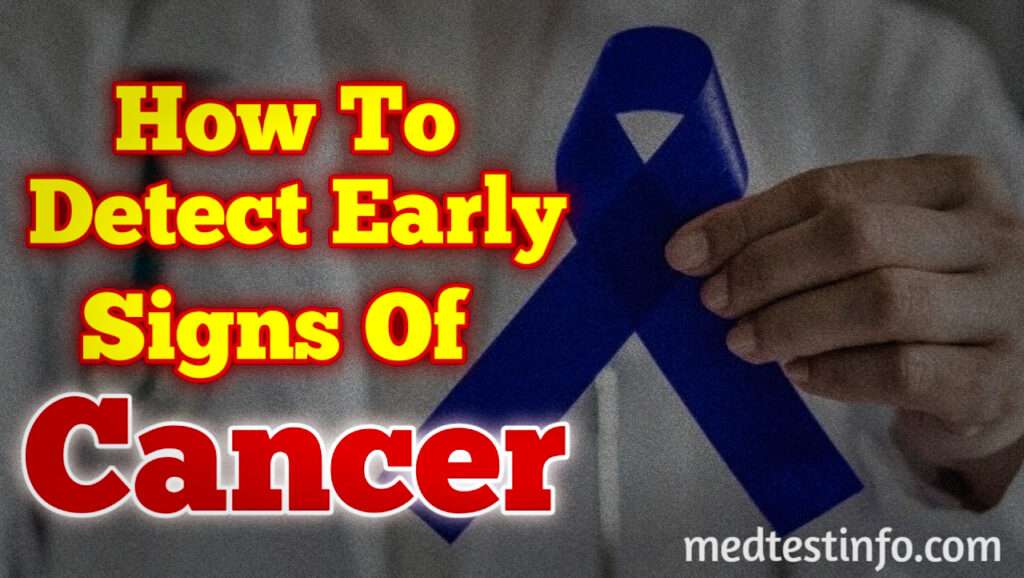
Overview
People commonly believe that sexual intercourse spreads sexually transmitted diseases (STDs), but there is more to the tale. Many individuals worry if they can get an STD without having intercourse. The answer may surprise you. While sexual contact is the most common way to develop an STD, there are several additional ways for these illnesses to spread.
In this detailed article, we’ll answer topics such as: can you have an STD/STI without having intercourse, can you get an STD without having sex, and can you get an STD without being sexually active? Let’s look at the various forms of transmission, dispel myths, and provide the information you need to stay informed.
What Are STDs?
Sexually transmitted diseases, commonly known as STDs, are infections that mainly spread through sexual activity between individuals. It’s a common misunderstanding that sexual activity is the only way to contract these diseases. Several STDs can also spread through nonsexual ways, like skin-to-skin contact, sharing personal items, or being passed from mother to child during childbirth.
Some infections, such as herpes or HPV, spread through casual physical contact, while shared needles or unclean medical equipment may transmit others, like HIV or hepatitis. Grasping these transmission methods is crucial for clearing up misconceptions and reducing the stigma that often surrounds STDs.
Understanding this information is crucial when discussing topics such as whether a virgin can contract an STD or if activities like masturbation carry any risk. Staying informed empowers you to make the right choices for your safety and the well-being of those around you.
Modes Of Transmission
Sexual Contact
People primarily transmit STDs through direct sexual contact, including vaginal, anal, and oral intercourse. This includes skin-to-skin contact or the exchange of bodily fluids. Can you get an STD without penetration? The answer is yes because STDs such as herpes and human papillomavirus (HPV) can spread through genital skin contact even without complete penetration.
Non-Sexual Transmission Methods
STDs can also spread through nonsexual contact. Some of these approaches include:
-
Skin-To-Skin Contact
Diseases such as herpes and HPV can be transmitted simply by skin-to-skin contact. You do not need to have intercourse for this transfer to occur. So, can you get an STD without having sex? Yes, nonsexual contact can transmit STDs such as HPV and herpes.
-
Shared Needles Or Blood Exposure
STDs such as HIV, hepatitis B, and hepatitis C can spread by contaminated needles or blood transfusions. Although these treatments do not entail sexual activity, the danger of infection remains the same.
-
Mother-To-Child Transmission
An infected woman can transmit certain STDs, such as HIV and syphilis, to her child during childbirth or breastfeeding. In this situation, a child can develop an STD at birth, even if there is no sexual activity. Can you be born with an STD? Yes, STDs can transmit during pregnancy and delivery.
-
Kissing Or Saliva Exchange
Although less prevalent, kissing can spread certain STDs such as herpes and, in rare situations, gonorrhea. As Dr. Sarah Thompson clarifies: “It’s rare, but gonorrhea in the throat can occasionally be transmitted through deep kissing, especially if there are open sores or infections in the mouth.”
-
Contaminated Surfaces
Some people are concerned about obtaining STDs from public surfaces, such as toilet seats. However, it is nearly impossible to catch STDs, such as chlamydia or gonorrhea, from a toilet seat because these germs cannot survive on inanimate surfaces.
STDs That Can Be Transferred Without Sexual Intercourse
Various STDs can be transmitted without engaging in sexual contact, and how this occurs might surprise you. Let’s take a look at what STDs you can get without having intercourse.
-
Human Papillomavirus (HPV)
HPV is the most common STD worldwide, and it can be transmitted through skin-to-skin contact. While sexual activity is a typical mode of transmission, HPV can spread without intercourse, simply through contact with an infected area.
-
Herpes Simplex Virus (HSV)
Herpes can spread through physical contact or kissing. This covers both genital herpes (HSV-2) and oral herpes (HSV-1). Even in the absence of obvious sores, the infection can spread. How is herpes transmitted non-sexually? Herpes can be transmitted through skin contact, saliva interaction, or sharing things like razors or utensils.
-
HIV
HIV is frequently transferred through shared needles, blood transfusions, or from mother to child after childbirth rather than solely through sexual contact. This demonstrates that you can catch HIV without intercourse; however, it is less prevalent than sexual transmission.
-
Hepatitis B & C
Hepatitis B and C can both be spread by interacting with the blood that is affected. Sharing needles, contaminated medical equipment, or even tattoo equipment can spread these illnesses.
-
Gonorrhea And Chlamydia
While sexual contact is the most prevalent route to spread gonorrhea and chlamydia, there is evidence that these infections can be transmitted via kissing in rare situations if the infection is in the throat. Can you get gonorrhea without sex? Yes, however, it is uncommon and typically includes nonsexual contact with diseased areas.
Preventative Measures For Non-Sexual STD Transmission
Even in the absence of sexual activity, the risk of developing an STD persists. Taking preventive steps to protect yourself from nonsexual transmission is critical. Below are some important preventative strategies outlined in more detail:
-
Vaccinations
Vaccinations are an efficient technique to prevent nonsexual transmission of some STDs. The HPV (Human Papillomavirus) vaccine is vital because it protects against virus strains that cause genital warts and cervical cancer. The hepatitis B vaccine is another important preventive measure, protecting against a virus that can be transmitted by contact with infected blood or bodily fluids. Vaccination is recommended for everyone, especially those working in high-risk situations like healthcare or who may come into touch with non-sterile medical equipment. Staying up to date on these immunizations dramatically lowers your chance of infection.
-
Hygiene
Maintaining proper personal hygiene is crucial for preventing the nonsexual transmission of diseases. Avoid sharing personal goods such as razors, toothbrushes, nail clippers, or needles because they can become contaminated with blood or bodily fluids, increasing the risk of transmitting illnesses such as hepatitis B, hepatitis C, or HIV. Common products like lip gloss or cosmetics should be kept personal because diseases like herpes can be transferred through saliva or skin contact. Always disinfect common surfaces and equipment to reduce your risk of illness, particularly in community areas such as gyms or spas.
-
Safe Medical Practices
Using sterile equipment for medical and cosmetic treatments helps avoid the spread of blood-borne infections. When getting tattoos, piercings, or blood testing, be sure that single-use needles and sanitized instruments are utilized. Contaminated needles and other medical instruments readily spread HIV, hepatitis B, and hepatitis C. Adhering to strict hygiene and sterilization practices decreases the chance of accidental infection for both healthcare personnel and patients. Avoiding shared needles, especially in drug-related or non-professional medical situations, is crucial for lowering the risk of dangerous diseases.
By following these precautions, you can greatly lower your risk of developing an STD, even in nonsexual settings. Through immunizations and good cleanliness, prevention is the strongest line of protection for your long-term health.
When To Seek Medical Help
If you fear you’ve contracted an STD, even if you haven’t engaged in sexual activity, you should see a doctor right once. Early detection and treatment can avoid complications and lower the likelihood of the infection spreading to others.
Look for the following indicators of infection:
- Sores or blisters: Unexplained sores on the genitals, mouth, or other regions may indicate an infection, such as herpes.
- Unusual discharge: Any abnormal discharge from the genitals may suggest an STD, such as chlamydia or gonorrhea.
- Itching or irritation: Do not overlook prolonged itching or irritation in the vaginal area.
- Flu-like symptoms: Fever, body aches, swollen lymph nodes, or exhaustion may indicate HIV or syphilis.
- Burning when urinating: Pain or discomfort while urinating may indicate a urinary tract infection or an STD.
Conclusion
Can you get an STD without having sex? The answer is yes. While sexual intercourse is the most prevalent mode of transmission for STDs, they can also be conveyed through nonsexual pathways such as skin contact, exposure to infected blood, and even from mother to child during birthing. Understanding these alternate modes of transmission is critical for safeguarding and maintaining your health. Taking precautions and remaining aware can greatly minimize your risk of developing an STD, regardless of sexual activity.
Frequently Asked Questions (FAQs)
There are many myths surrounding STD transmission. Let’s clear up a few:
No, masturbation or jerking off alone does not transmit STDs since there is no exchange of bodily fluids or contact with another person. It’s important to remember that using shared sex toys without proper cleaning can carry a small risk of passing on infections such as herpes or HPV. For everyone’s well-being, it’s important to clean shared devices regularly and to use protection, such as condoms, on sex toys.
Yes, it is possible to contract an STD even if someone identifies as a virgin, depending on how one defines virginity. Even if someone is a virgin, participating in non-penetrative sexual activities such as oral sex, mutual masturbation, or close genital contact can still lead to the risk of infections like herpes, HPV, or gonorrhea. Even simple acts like kissing can pass on certain STDs, including the herpes simplex virus (HSV-1) if one person is infected.
It’s very unlikely to catch an STD from a toilet seat; the risk is almost nonexistent. Many STDs don’t last long outside the human body and need direct skin-to-skin or fluid-to-fluid contact to spread. Medical experts have clarified that the myths surrounding STD transmission from toilet seats are not true. Taking care of hygiene can ease any worries you might have.
If both partners have never had any sexual or intimate contact with anyone else, the chances of passing on an STD are very minimal. Even in cases where one partner contracts an STD through non-sexual means, like during birth or by sharing contaminated needles, there is still a chance of transmission. Talking and trying things through can help everyone feel clear and at ease.
Although testing is the most dependable method to confirm an STD, some symptoms may suggest that an infection is present. Some signs to watch for are unusual discharge, sores in the genital area, itching, urinating pain, or symptoms that feel like the flu. However, many STDs can be asymptomatic, which means they don’t show any visible signs. Contact a healthcare provider for a proper check-up if you think you might have been exposed or feel unwell.


